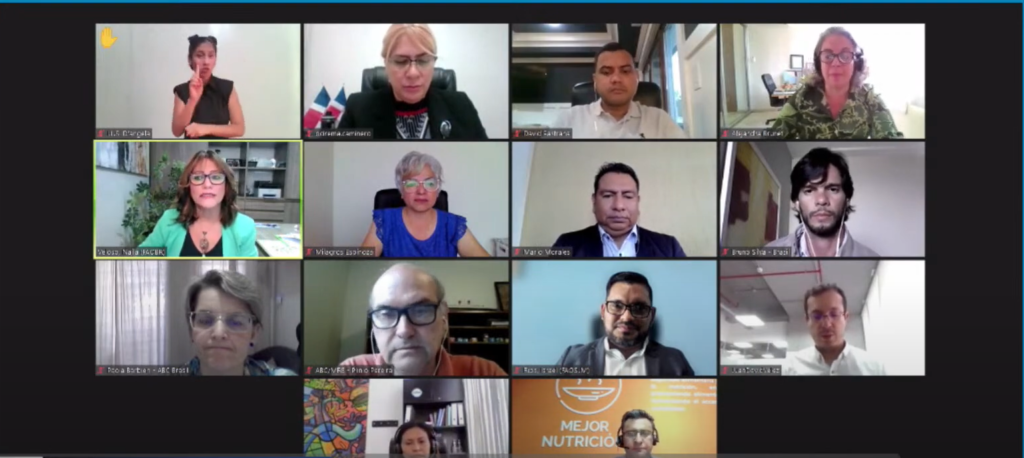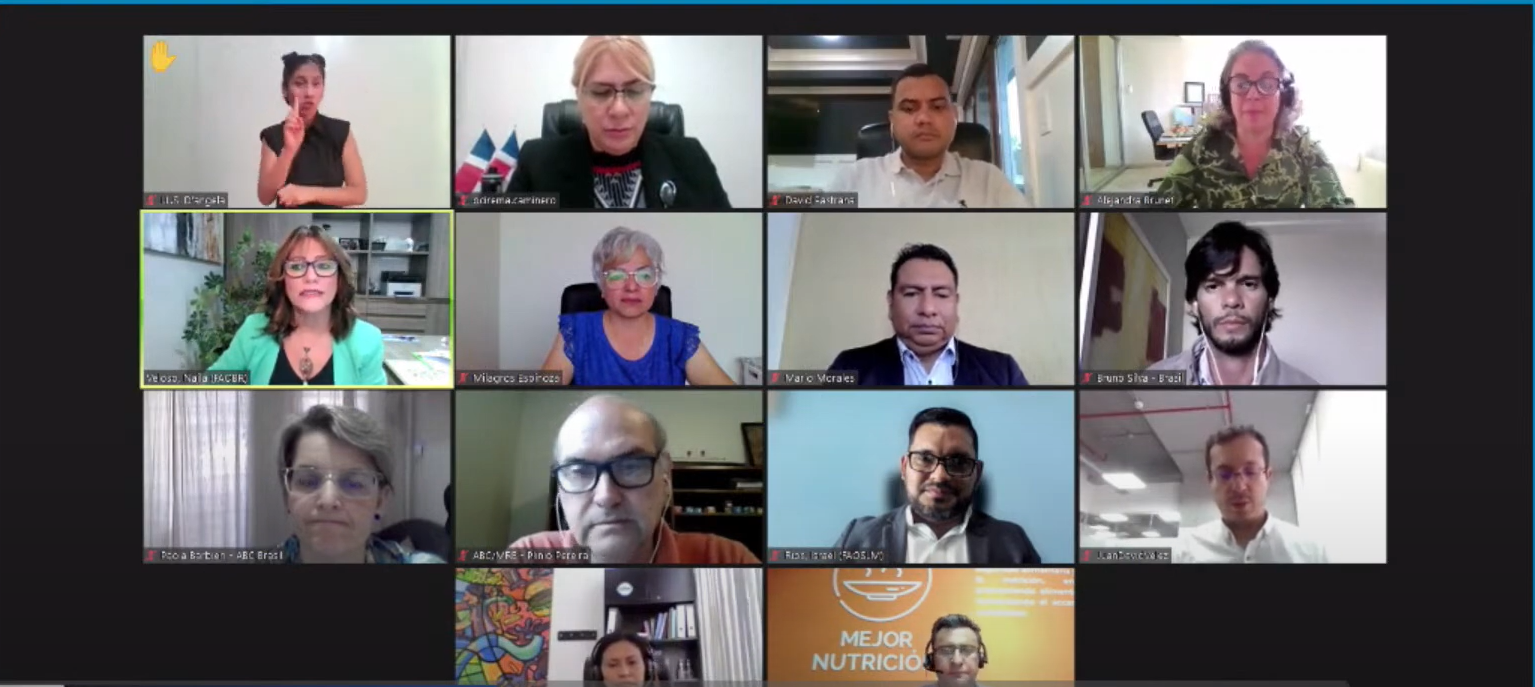In a decade of collaborative work to strengthen school feeding in the region, more than 1.6 million students have already been benefited.
Santiago de Chile, May 9, 2022 – Over the last 10 years, more than 23,000 school in Latin America and the Caribbean have already implemented Sustainable Schools, benefiting 1.6 million students in 15 countries. To celebrate and present the results of a decade of work, the virtual event ‘Sustainable Schools: a decade of transformation of school feeding, with a focus on the human right to adequate food’ was held. It was promoted by the National Fund for Educational Development (FNDE/MEC), the Brazilian Cooperation Agency (ABC/MRE) and by the Food and Agriculture Organization (FAO), within the scope of the project Consolidation of School Feeding Programs in LAC, in the framework of the Brazil-FAO International Cooperation.

Representing the Government of Brazil, Plínio Pereira, from ABC/MRE, praised the work of the Brazil-FAO International Cooperation in school feeding in recent years, and highlighted that the study is relevant for bringing the update on the implementation of Sustainable Schools. “This is an important study material for all managers, technicians and those interested in strengthening school feeding in our region and beyond”, said. “It constitutes another relevant content that the Brazil-FAO International Cooperation provides to partner countries”.
For Najla Veloso, coordinator of the school feeding project of the Brazil-FAO International Cooperation, the study represents a synthesis of all the work carried out over the last decade in terms of capacity development, intersectoral articulation, public procurement from family farming, social participation, Food and Nutrition Education actions, implementation of educational gardens and improvement of the infrastructure of thousands of schools.
“Sustainable Schools have been a reference for the implementation of laws and for making school feeding become a state policy. For more than 10 years they have been surviving changes in governments, crises and instabilities, and, now we are even stronger with the Sustainable School Feeding Network (RAES, for its acronym in Spanish)”, evaluated. .
During the webinar, Bruno Silva, international advisor to the National School Feeding Program of Brazil (PNAE, for its acronym in Portuguese), run by the FNDE, highlighted the relevance of the study on Sustainable Schools: “This material merges the history of everything that has been developed in cooperation in school feeding in our region with a mixture of past and present”.
Israel Rios, FAO nutrition officer, celebrated the the joint work of the Brazil-FAO International Cooperation with the countries of the region and recalled that this methodology changed the paradigm of school feeding, institutionalizing the purchase from family farming and guaranteeing the focus of the human right to adequate food.
A new vision of school feeding
The webinar presented the results of the study “The Situational State of Sustainable Schools in Latin America and the Caribbean – 2021”, which is now available on the RAES website (in Spanish). The Sustainable Schools methodology is also part of the Brazilian government’s commitment through the Sustainable School Food Network (RAES). The objective of the study is to facilitate the understanding of the Sustainable Schools methodology and to disseminate its results to a wider audience, such as public policy makers, authorities, technicians, NGOs, school directors, nutritionists, fathers and mothers, farmers, cooperatives, associations, students, teachers, etc.
Mario Domingo Morales, the consultant responsible for the study, said that the methodology is present in 536 cities, ensuring an important source of income for 9,356 farming families through the direct sale of their production to 23,385 Latin American and Caribbean schools. “Sustainable Schools have transformed the lives of millions of families in the region and will continue to do so”.
Results
Among the results, the study revealed that countries agree that the creation of spaces for inter-institutional and intersectoral articulation, coordination and decision-making are necessary to adopt the Sustainable Schools methodology to strengthen school feeding programs. With the implementation of this initiative, school feeding became visible as a social and strategic policy for sustainable development in these countries.
Regarding adequate school menus, most countries have developed and implemented them with reference to national food and nutrition guidelines so that they are adequate, healthy, tasty and relevant to the local culture.
The study identified continuous and growing interest in public procurement from family farmers due to the important support it represents for small producers, communities and local markets. Most countries agree that this component has the greatest effect on the implementation of Sustainable Schools.
Over the last 10 years, school feeding laws have been approved and implemented in countries such as Paraguay, Guatemala, Honduras and Ecuador, based on the Sustainable Schools methodology implemented in these countries and in LAC region, consolidating school feeding as a state policy. El Salvador is currently working on a school feeding law based on the experience of Sustainable Schoolsdeveloped in the country.
Sustainable Schools
Created from the premise that schools are privileged spaces for the convergence of the community, and that the social and economic development of a city is associated with educational inclusion, the Sustainable Schools methodology consists of the implementation of a “model” of sustainable school feeding.
Sustainable Schools have six components: interinstitutional and intersectoral articulation; social and community participation; adequate infrastructure for schools; food and nutrition education with the implementation of educational school gardens; healthy and tasty menus; and public purchases of food from family farming.
The components were developed in schools and cities selected by governments, always respecting the reality and peculiarities of each participating country. So, these educational centers constitute learning laboratories on the school feeding policy, aiming to achieve the scaling of the school feeding policy at the national level.
Content published on the website of the Brazil-FAO International Cooperation
See the study clicking here






